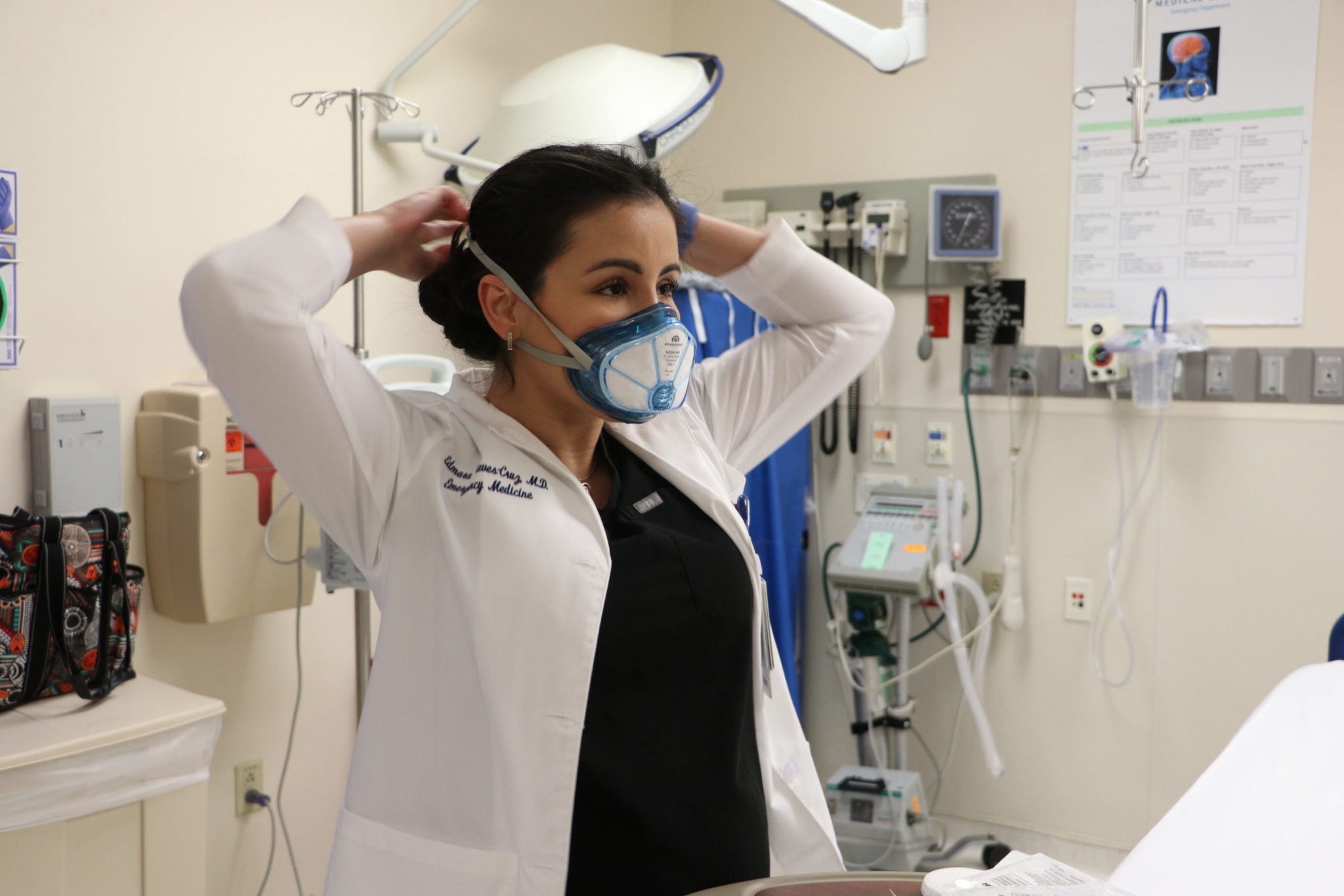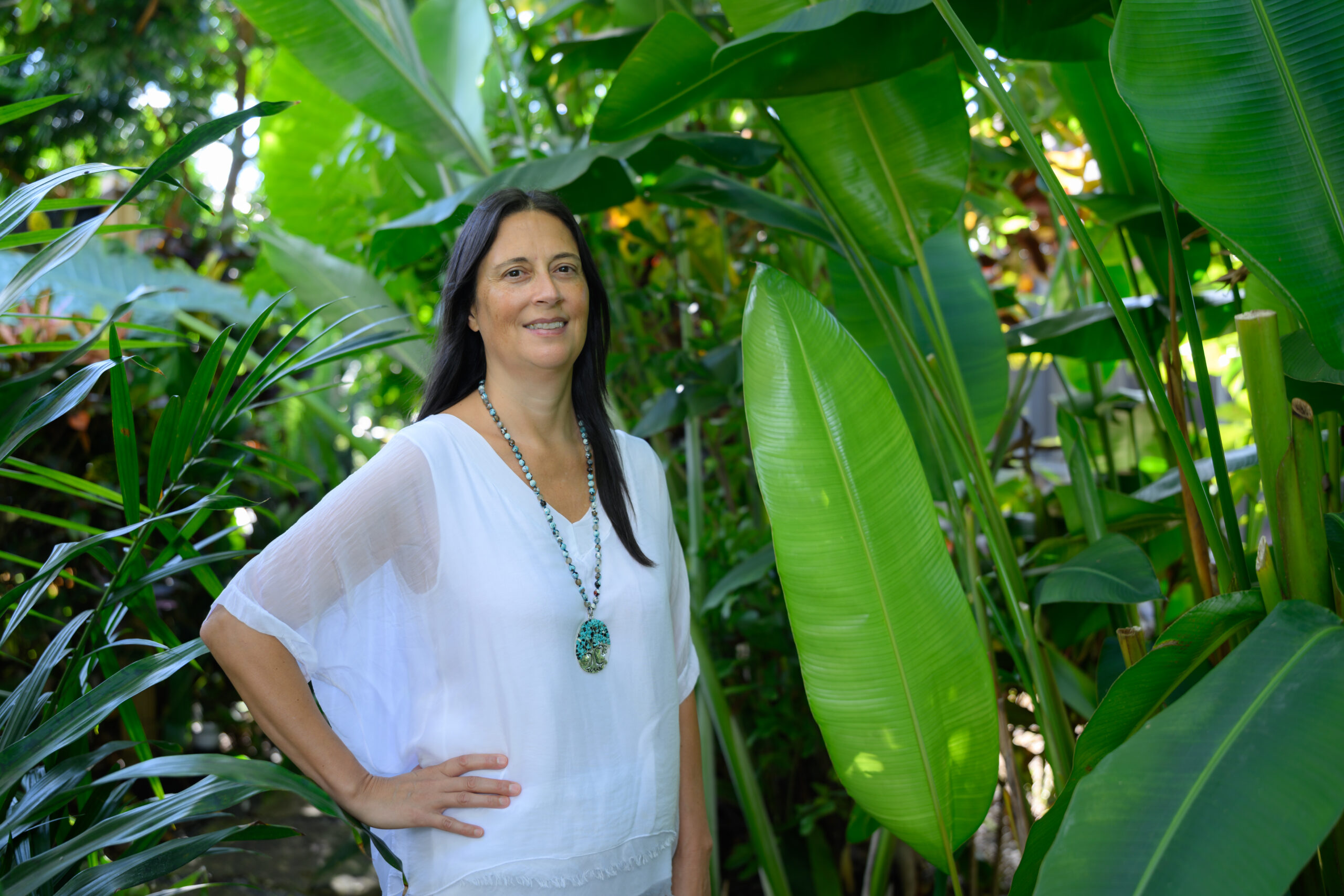Edmara Nieves
Attending physician, emergency room, Broward Health Medical Center
Background: Nieves earned her medical degree at Ponce Health Sciences University School of Medicine in Puerto Rico and completed her residency at Orlando Health. She teaches emergency medicine to students and residents as a faculty member at Nova Southeastern University and Florida International University.
Pandemic stories: Fear strikes the Broward Health Medical Center ER team when paramedics call from the ambulance to say they’re bringing in a COVID-19 patient in respiratory distress. “We don’t know if we are doing enough to protect ourselves,” Nieves says. “There’s a reason why [some 800] U.S. health care workers have died because of COVID [as of mid-July, according to reporting by The Guardian and Kaiser Health News].”
Pregnant with her first baby, a boy who is due in September, Nieves has been particularly worried about her health.
“It’s so terrifying because as a pregnant female, I’m considered immuno-compromised,” she says. “If I get infected, my immune system won’t be able to fight off the virus as well as if I weren’t pregnant.”
Her gynecologist suggested she stop working, but she didn’t want to abandon her team in a time of need. Although she did perform some “crash intubations” when the pandemic first hit—the insertion of a tube into a patient’s trachea—she no longer gets that close to sick patients; her team members do the procedure instead.
“It’s one of the scariest times in our professional career,” she says. “We go into medicine, and we spend over 10 years just studying to learn the diagnostics and therapeutics that have proven to be safe and efficacious. But now this pandemic comes in, and we’re facing this giant with little to no evidence about what works.”
She recognizes the emotional and financial burdens of the spring lockdown. But from a physical health perspective, Nieves saw its benefits.
“People were staying home, they were being good, so the COVID volume went down significantly” in May, she says. “We were feeling very hopeful.”
But a false sense of security led to what she calls “a 180-degree turn.” In July, more than 60% of the visits to Broward Health’s ER Room were COVID-19 patients, she says.
As South Florida makes headlines as a viral epicenter, Nieves reflects with chagrin on the community’s handling of the pandemic. People are resuming normal activity without wearing masks.
“It came to a point where we became comfortable with the situation, with the numbers we were seeing, with starting up our lives again,” she says. “We dismissed the highly virulent, life-threatening enemy. The virus is still here—it was just waiting for us to make a mistake.”















